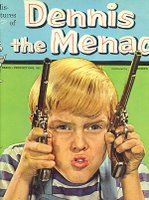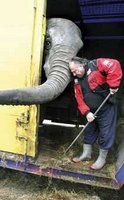About Comp Units
Welcome to AudioLinks101 - a web site/blog for teachers of college composition managed by Myron Tuman, the academic behind the successful classroom tool ConnectWeb. The goal of AudioLinks101 is quite simple: To help teachers use audio files with their classes as a means of building interest in a wide range of writing topics, usually at the start of a unit. AudioFiles101, in other words, can be seen as a new kind of thematic reader, although one that is more flexible and more fun. In addition, the files are all free and easily accessible. All of them can be streamed online and quite a few (usually in mp3 format) can be downloaded as well and then played on portable player.
Here are the three main features of the site:
- A daily posting on a recent or memorable audio piece, usually from NPR. This posting includes links to audio as well as print files, teaching suggestions (called "Classroom Thoughts"), and full blogging apparatus to give feedback.
- A list of links to NPR and a few other sites that have daily-updated audio content.
- A special section, 25 topics for composition, that brings together a series of audio files on a single topic (usually varying in length from 3-5 minutes to up to an hour), as well as suggestions for writing and further reading.
Writing and a Knowledge Base
Students write better when they have something to say. The key to improve their writing is to enhance their interest in the topic at hand, and the best way to do this is to build a knowledge base about a series of topics within the course. In the past, the reading of essays from textbooks has been perhaps the single most relied upon tool in this effort. Older freshman readers often emphasized essays as models (of style, tone, format or mode of exposition), while the trend for the past two decades has been for thematic readers. (Bedford Books now lists some 35 such readers.)Yet the best teachers have always known that the real secret to building the students’ knowledge of a topic is first to get their interest, and hence have also relied on pre-writing and class discussion – there is no denying that students display more interest when given the opportunity to express their own opinions
Audio Files and Writing
There is a wealth of online reading material on all these topics for teachers who wish to have their students pursue these issues (and each unit has at least one suggestion for beginning such research); yet there are also teachers who may want their classes to begin writing as soon as possible, and for these teachers, there is the “Write Now” section on each unit: a couple of questions that students should be able to begin addressing in their writing immediately after listening to the audio files.A unit can possibly be completed in as little as one week, especially a “softer” unit such as the one on pets; other units can easily be expanded to three weeks or more, depending on the amount of research and the nature of the writing assignment. A first-semester course, for instance, might rely heavily on the “Write Now” assignments, while a second-semester course might use the entire unit as a preliminary for more traditional research. It's really all up to you, the teacher.
These files would normally be listened to outside of class, that is, as homework, and hence their use does not require any special classroom set-up. Obviously it is much easier to assign these files if a class is on Blackboard or otherwise has it own Web page.
Why Audio?
The flip answer might be “Why not?” It is not just that the files are readily available; they also represent a huge investment of intelligence and planning by some highly intelligent producers. The NPR site itself is an incredible reservoir of material that has too long gone under-utilized in the college classroom. (Check out the link to the most emailed stories at NPR or this interesting new compliation there, called mixed signals.) After all, it is not as if many of our students are already familiar with all this material. Besides NPR, there are many other sites, including national broadcast systems in Canada and Netherlands, producing amazing high quality radio documentaries.There are three other significant advantages of audio files: One, audio, like the essay of the traditional college reader is a word-based medium. These files feature well-crafted sentences, in addition to interesting presentations. Second, audio files are relatively small and portable, easy to move around and, where possible, to load on mp3 players that are now even being built into cell phones. Third, many of the sites hosting these audio files have extensive notes and links on the topic being covered.
A Word on Podcasting
Podcasting is a subscription-like means of delivering audio content (that is, audio files like those here), and the wave of the future. At present, AudioFiles101 does not provide any links to podcasts; all the links here are to materials that can be listened to directly (“streamed”) at their respective Web site.AudioFiles101, a Blog?
AudioFiles101 is set up to become a blog, that is, to provide the regular posting of new material. For this initial stage, however, the focus will remain on the original 25 Topics. There is a place to comment on each of these, to add suggestions for further listening or reading. Feel free to comment on the topics or to write me directly: mtuman@sprynet.com.Your enthusiasm is the fuel that will drive this Web site. Thanks for checking us out.
























